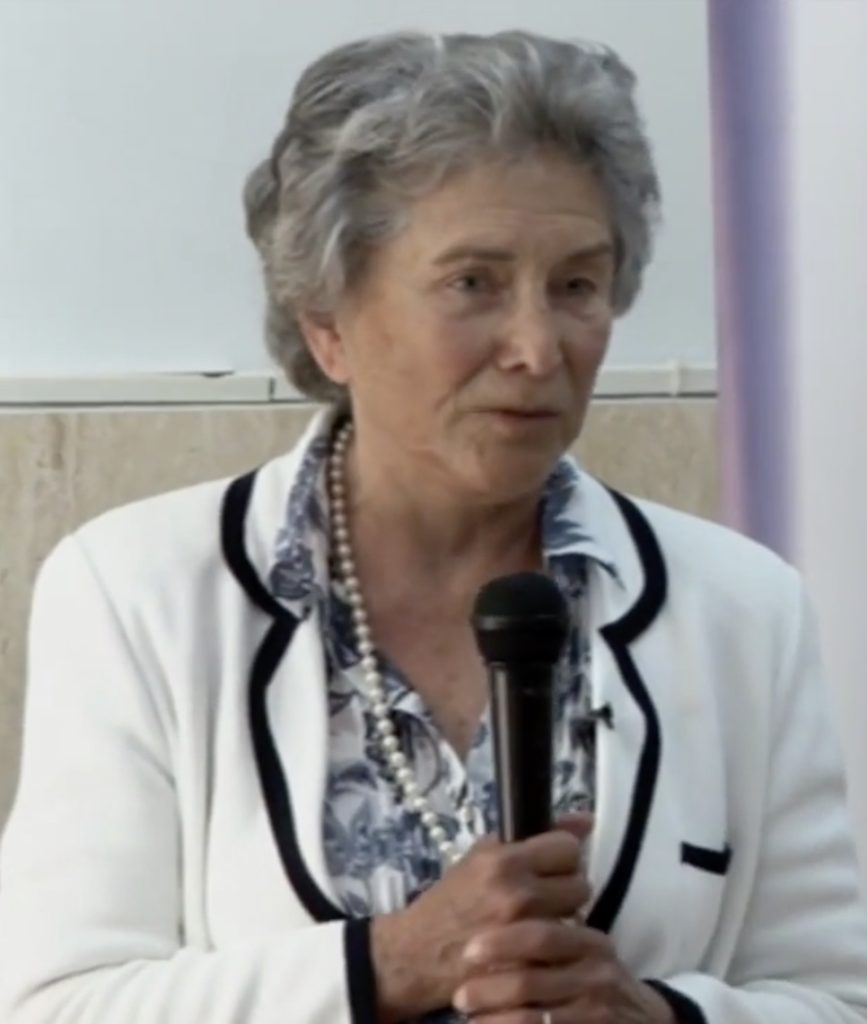How the myth of ‘Eurabia’ went mainstream

The myth of Eurabia: how a far-right conspiracy theory went mainstream by Andrew Brown
A “long read” in today’s Guardian, about the far-right myth of “Eurabia”, that Europe’s leaders have caved in to Muslims left, right and centre for money and favours, tracing its origins from the witterings of Gisele “Bat Ye’or” Littman (right) to the war-blogs of post-9/11 America to the modern-day far right, EDL and other extremist organisations. As this blog in its early days spent a lot of time rebutting false claims and myths about Islam and Muslims that were spread on those blogs, this article was an interesting trip down memory lane but also emphasises how the theories that were incubated on these blogs have fuelled far-right violence, including the 2011 Utoya massacre whose perpetrator’s manifesto quoted liberally from some of these bloggers as well as right-wing mainstream media figures.
A small inaccuracy: Brown notes that Charles Johnson, the owner of Little Green Footballs, “excommunicated most of his followers in 2010 because of their increasing closeness to parties of western Europe that he regarded as being descended from fascists … Johnson was a genuine philosemite, who could not forgive the taint of antisemitism”. As I recall, the first signs of a split between Johnson and his right-wing followers came with the Terri Schiavo affair, in which some of his former conservative allies took the side of Terri Schiavo’s family who were using the courts to keep her alive following her catastrophic brain damage, while Johnson believed that it was right to switch her life support off. Johnson supported Barack Obama in 2008 which must have alienated a fair number of the Islamophobic right-wing supporters, some of whom were conservative Jewish Zionists. Johnson himself was a liberal before 9/11 and went back to being one before GW Bush was out of office. He had simply changed his mind and, although I’ve never followed him, the few times I’ve seen his tweets retweeted, his politics now seem to bear no resemblance to the attitudes he (let alone the commenters on his blog) displayed in the few years after 9/11.
But it was also interesting to read about how exciting blogs were back in the early 2000s, before social media ruined everything:
Nowadays, when Facebook effortlessly spreads disinformation around the world, it is difficult to recapture the sense of revelation, and of belonging, that once accompanied the discovery of a new blog. The cramped but, to its adherents, strangely comforting thought world of the counter-jihad blogs turned politics into a gigantic online game.
Blogs were heavily interlinked and authors formed communities, and people went from commenting below the line on others’ blogs to starting their own and rather than a formal system of online ‘friends’, people would keep in touch using old-fashioned email. Very many, of course, did not last; some were taken down and others were abandoned, but it was always nice to get to know someone through their blog or to get involved in debates. These days, much online discussion is through Twitter or other social media and few people make the effort to set out an argument or story in an article; they just write a snappy sentence or two. We had a thriving Muslim blogging scene, but few of those blogs survive and a few of the most prominent authors have dropped out of view entirely and in some cases left Islam.
One thing this article could have mentioned, however, was the bizarreness of the central claim of ‘Eurabia’, that Europe was being taken over by Muslims. The ‘evidence’ was every time any organisation made any concession to Muslim sensibilities whether it was a public body or a commercial organisation seeking to please paying customers. In fact, in most of Europe, legislation targeting Muslim customs was being introduced in almost every country in mainland Europe, particularly northern and central Europe, during the same period even as some of those countries were feted for opposing the war in Iraq; in particular, the campaign of harassment against girls and women in France who wear the hijab was stepped up with legislation banning it in schools being passed (after a ‘debate’ in which Muslim voices were shouted down) in 2004 and further laws, targeting women doing such things as accompanying their children on school trips and wearing the niqaab in the street, have followed. There have been laws banning halal slaughter and threats to ban male circumcision, as well as witch-hunts against immigrant populations (mainly African Muslims) suspected of continuing the practice of female circumcision or genital mutilation. Europe was for the most part a much more hostile place for Muslims than the United States was in the 2000s; the claim of Muslim ‘submission’ to Islam struck many of us as a sick joke, and a lie believed in a closed circle because it was politically convenient.
